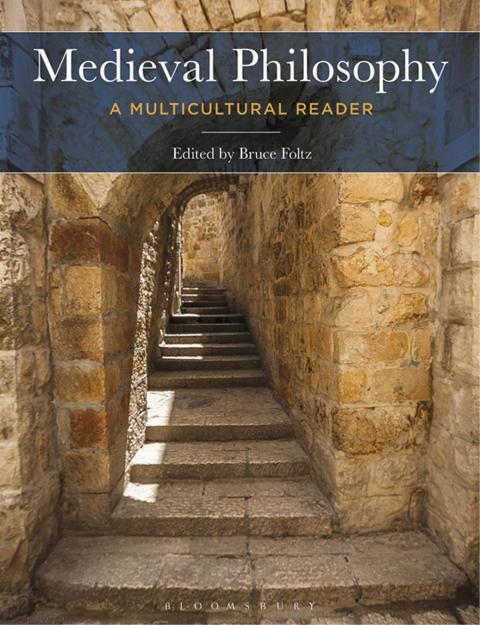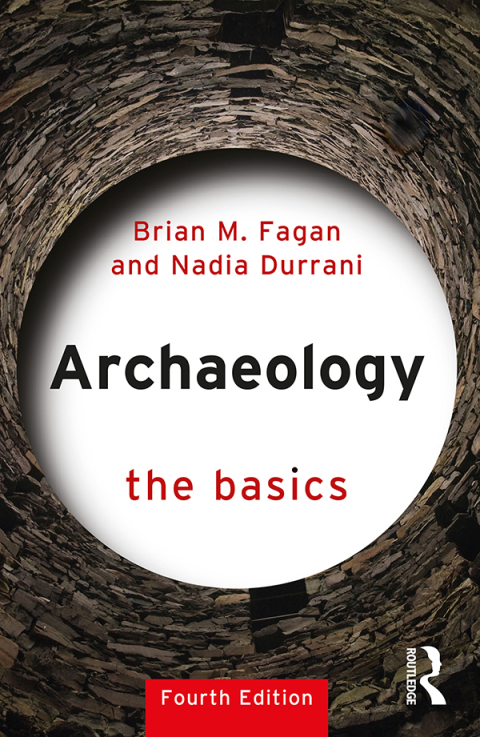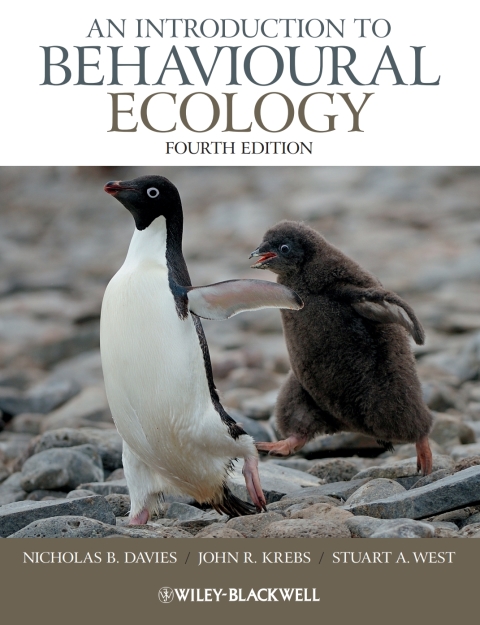Description
Efnisyfirlit
- Cover
- Halftitle Page
- Title Page
- Contents
- Foreword
- Contributors
- Introduction
- 1 What indeed has Athens to do with Jerusalem?
- 2 What is philosophy?
- 3 Why is this book “multicultural”? What does this mean?
- 4 For which readers is this book intended? And why a reader?
- Notes
- Further reading
- Part 1: Ancient philosophy as a spiritual tradition: Predecessors of medieval philosophy
- 1. Plato (427–347 BCE)
- Phaedrus (246a–248d)
- Timaeus (27d–31b)
- Symposium (210a–212b)
- Republic (507d–509b)
- 2. Aristotle (384–322 BCE)
- Nicomachean Ethics, Book X (Chs. 8–9)
- On the Soul, Book II
- On the Soul, Book III
- Metaphysics, Book XII (Chs. 7, 9)
- 3. Cicero (106–43 BCE)
- On the Nature of the Gods, Book II
- 4. Epictetus (late first century–early second century)
- Handbook
- 5. Plotinus (205–270)
- Ennead I.6: On beauty (complete)
- Ennead V.1: On the three primary hypostases
- Ennead VI.9: On the Good or the One (complete)
- 6. Proclus (c. 412–485)
- The Elements of Theology
- Commentary on Plato’s Parmenides, Book VII
- Notes
- Further reading
- Sources
- Part 2: The Greek Christian Tradition
- 7. Justin Martyr (c. 100–c. 165)
- First Apology
- Second Apology
- 8. Irenaeus of Lyons (c. 130–c. 205)
- Against Heresies, Books IV & V
- 9. Clement of Alexandria (150–c. 215)
- Stromata (Miscellanies), Books II & V
- 10. Origen (c. 185–253)
- On First Principles, Books I–III
- 11. Athanasius of Alexandria (c. 300–373)
- On the Incarnation
- Orations against the Arians, Book III
- 12. Basil of Caesarea (c. 330–379)
- The Long Rules, Q. 2
- Hexaemeron
- Epistle 234: To Amphilochius, in reply to a question
- On the Holy Spirit
- Homily: That God is not the cause of evil
- 13. Gregory Nazianzen (c. 330–390)
- Oration 28 (Second Theological Oration)
- Oration 30: Concerning the Son (Fourth Theological Oration)
- Oration 38: On the Theophany
- 14. Gregory of Nyssa (c. 335–c. 394)
- On Virginity (Chs. 11, 12)
- The Life of Moses, Book II
- 15. Evagrius of Pontus (345–399)
- On the Practical Life
- On Thoughts
- On Prayer
- 16. John Chrysostom (c. 347–407)
- Homilies on the Psalms (Psalm 6)
- Homilies on Titus (Homily 3)
- Homilies on I Corinthians (Homily 4)
- Homilies on the Gospel of John (Homily 45)
- Homilies on Romans (Homily 16)
- Homilies on Philippians (Homily 8)
- 17. Dionysius the Areopagite (fifth–sixth century)
- The Divine Names
- The Mystical Theology
- The Celestial Hierarchy
- 18. Philoponus (c. 490–c. 570)
- Against Proclus on the Eternity of the World
- The first argument of Proclus
- Refutation of the first argument
- The second argument of Proclus
- Refutation of the second argument
- The fourth argument of Proclus
- Refutation of the fourth argument
- 19. Maximus the Confessor (580–662)
- Centuries on Charity, Books I, II & IV
- Chapters on Theology and Economy, Book I
- Mystagogy
- Ambigua 7: On the beginning and end of rational creatures
- Ambigua 21: The transformation of the senses
- Ambigua 33: The thickenings of the Logos
- 20. John of Damascus (c. 655–c. 750)
- On the Orthodox Faith, Books I & II
- Defense of the Holy Icons
- 21. Symeon the New Theologian (949–1022)
- Catechetical Discourses: Discourse 16
- Catechetical Discourses: Discourse 22
- 22. Gregory Palamas (1296–1359)
- Triads in Defense of the Holy Hesychasts
- Notes
- Further reading
- Sources
- Other sources (in order of appearance)
- Part 3: The Latin Christian Tradition
- 23. Augustine of Hippo (353–430)
- Confessions IV, 4–6, section 94
- Confessions X, 1–8
- De civitate Dei (The City of God): VIII, 11 (Plato’s philosophy of God)
- De civitate Dei: XIV, 28 (Two cities based on two loves)
- De civitate Dei: XIX, 11–13 (Tranquility of order)
- De civitate Dei: XIX, 23–24 (Meaning of a people)
- 24. Boethius (480–524)
- De consolatio philosophiae (Consolation of Philosophy)
- 25. John Scottus Eriugena (815–877)
- On the Division of Nature (Periphyseon), Book 1
- 26. Anselm of Canterbury (1033–1109)
- Proslogion (Chs. 1–22)
- 27. Bonaventure of Bagnoregio (1217–1274)
- Itinerarium mentis in Deum (The Mind’s Journey into God) (Prologue and Chs. 2, 5, 6, 7)
- 28. Thomas Aquinas (1225–1274)
- On Being and Essence (Prologue and Chs. 1, 2, 5, 6)
- Summa Theologiae, Ia, q.2, a.1–3: The existence of God
- Summa Theologiae, IaIIae, q.5, a.8: Whether every man desires happiness?
- Summa Theologiae, IaIIae, q.61, a.1: Should the moral virtues be called cardinal or principal virtues?
- Summa Theologiae, IaIIae, q.62. a.2: Are the theological virtues distinct from the intellectual and moral virtues?
- St. Thomas on creation
- 29. Marguerite Porete (1250–1310)
- The Mirror of Simple Souls (Chs. 16–18, 47–55)
- 30. Meister Eckhart (1260–1328)
- German Sermons (Sermon 9)
- Parisian Questions
- 31. John Duns Scotus (c. 1266–1308)
- Ordinatio I: d.3, p.1, q.1
- 32. William of Ockham (c. 1287–1347)
- Summa Logicae (Chs. 12–18)
- 33. Nicholas of Cusa (1401–1464)
- On Learned Ignorance, I (Chs. 1–3)
- On Learned Ignorance, II (Ch. 12)
- Notes
- Further reading
- Sources
- Part 4: The Jewish Tradition
- 34. Rabbinic, Midrashic and early mystical writings
- Introduction to the early Jewish textual background (a glimpse): Rabbinic, Midrashic and early mystical writings
- Babylonian Talmud, Mo‘ed, Ḥagigah 11b–14a
- Sifre: Numbers 112
- Midrash Rabbah: Numbers Rabbah 13:15
- Midrash Rabbah: Genesis Rabbah 1:1 & 1:4
- Sefer Yeẓirah (The Book of Creation)
- Zohar
- 35. Philo of Alexandria (c. 20 BCE–c. 50 CE)
- On the Creation, sections 1–37
- On the Creation, sections 53–55 (Day 4 of Creation)
- On the Creation, sections 66–71, 77–8
- Allegorical Interpretations II, sections 4–13
- Allegorical Interpretations II, sections 19–30
- Allegorical Interpretations II, sections 65–98
- 36. Isaac Israeli (c. 855–955/6)
- Book of Substances, fragments I, II, III
- Book on Spirit and Soul, section 9
- Mantua Text, section 1
- 37. Saadya (882–942)
- Book of Doctrines and Beliefs, Introduction, sections 3–4
- Book of Doctrines and Beliefs, Introduction, section 5
- Book of Doctrines and Beliefs, Introduction, section 6
- 38. Solomon Ibn Gabirol (b. 1021–1026, d. 1050–1070)
- ‘Keter Malkhut’ (‘Kingdom’s Crown’)
- ‘Ahavtikha’ (‘I Love You’) (complete)
- Genesis commentary
- Fons Vitae (yanbū’ al-ḥayāh, The Fountain of Life)
- (preface, 1.6–7, 1.9, 1.17, 2.1–2, 3.56, 4.4, 4.9, 5.1, 5.25, 5.29. 5.32, 5.36, 5.38, 5.41–2)
- The Improvement of the Moral Qualities, Introduction
- 39. Judah Halevi (c. 1075–1141)
- Poetry (‘You Knew Me,’ ‘A Doe Far from Home,’ ‘A Dove in the Distance’) (complete)
- Kuzari, Book One: 1.1–4, 1.10–11, 1.63–79
- Kuzari, Book Four: 4.1–5, 4.16
- Kuzari, Book Five: 5.2–8, 5.10
- 40. Baḥya ibn Pequda (eleventh–twelfth century)
- Duties of the Heart, summary poem
- Duties of the Heart, Introduction
- Duties of the Heart, Chapter 2
- Duties of the Heart, Chapter 10
- 41. Moses Maimonides (1135/8–1204)
- Guide of the Perplexed, Introduction to the first part
- Guide of the Perplexed 1.1
- Guide of the Perplexed 1.2
- Guide of the Perplexed, Introduction to the third part
- Commentary on the Mishnah (Sanhedrin, Ch. 10 [“Pereq Ḥeleq”])
- 42. Gersonides (1288–1344)
- Wars of the Lord, Vol. 1, Bk. 1 (Chs. 11–13)
- Wars of the Lord, Vol. 2, Bk. 4 (Chs. 4–5)
- Wars of the Lord, Vol. 3, Bk. 6 (Pt. 1, Chs. 13, 17)
- Wars of the Lord, Vol. 3, Bk. 6 (Pt. 2, Chs. 1–5)
- Notes
- Further reading
- Sources
- Part 5: The Islamic Tradition
- 43. Theology of Aristotle (Uthūlūjīyā Arisṭāṭālīs) (Anonymous)
- 1.21–25
- 4.1–3
- 7.1–10
- 8.98–102
- 10.1–23
- 10.179–191
- 44. Razi (c. 854–925)
- The Book of Philosophical Life (Kitāb al-ṣirāṭ al-falsafīya) (complete)
- Abū Ḥātim Rāzī’s The Proofs of Prophecy (A‘lām al-nubuwwa)
- 45. Alfarabi (c. 870–950)
- Attainment of Happiness (Taḥṣīl al-sa‘āda) (complete)
- Letter on the Intellect (Risāla fī-l-‘aql) (complete)
- 46. Avicenna (980–1037)
- De Anima of the Book of Salvation (Kitāb al-najāt)
- The Metaphysics of the Healing (Kitāb al-shifā’: al-Ilāhīyāt), Book Ten
- The Logic of the Easterners (Manṭiq al-mashriqīyīn), Introduction
- Remarks and Admonitions (Al-Ishārāt wa-l-tanbīhāt), Part Four
- The Metaphysics of The Healing (Kitāb al-shifā’: al-Ilāhīyāt), Book One
- 47. Ghazali (c. 1056–1111)
- Deliverance from Error (Al-Munqidh min al-ḍalāl)
- 48. Ibn Tufayl (c. 1105–1185)
- Ḥayy ibn Yaqẓān
- Author’s Introduction
- The Two Accounts of the Origin of Ḥayy ibn Yaqẓān
- The Autodidactic Ḥayy ibn Yaqẓān
- The Harmony of Philosophy and Revealed Religion
- 49. Averroes (c. 1126–1198)
- Decisive Treatise Determining What the Connection Is between Religion and Philosophy (Faṣl al-maqāl fī taqrīr mā bayna al-shari‘a wa-l-ḥikma min al-ittiṣāl) (complete)
- 50. Suhrawardi (1154–1191)
- The Philosophy of Illumination (Ḥikmat al-ishrāq), Introduction
- The Philosophy of Illumination (Ḥikmat al-ishrāq), Part Two, First Discourse
- The Philosophy of Illumination (Ḥikmat al-ishrāq), Part Two, Fifth Discourse
- 51. Ibn Arabi (1165–1240)
- The Meccan Revelations (Al-Futūḥāt al-Makkīya), Chapter 167
- The Meccan Revelations (Al-Futūḥāt al-Makkīya), Chapter 8
- 52. Mulla Sadra (c. 1571–1636)
- The Wisdom of the Throne (Al-Ḥikma al-‘arshīya), Concluding Testament
- The Wisdom of the Throne (Al-Ḥikma al-‘arshīya), Part I
- The Wisdom of the Throne (Al-Ḥikma al-‘arshīya), Part II
- Notes
- Further reading
- Sources
- Timeline
- Map
- Index
- Imprint






